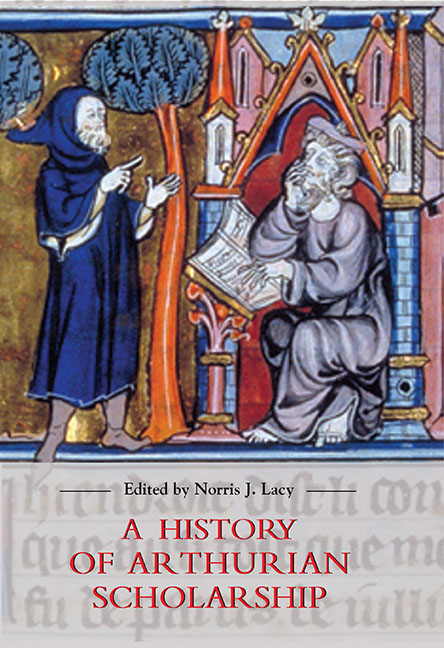Latin Arthurian Literature
Published online by Cambridge University Press: 18 March 2023
Summary
The Arthurian legend has indeed been of late, both in Europe and in America, the subject of so much mythological, ethnological and philological speculation as to tempt the unsophisticated lover of mere literature to say,when he contemplates the mounting pile of printed critical matter, that Arthur's sepulchre, wherever hismortal remainsmay lie, is at last well on the way to be built in our libraries.
In 1913, W. Lewis Jones remarked, in a somewhat despairing way, on the ‘mounting pile’ of Arthurian scholarship – a pile that was daunting both by its size and, to Lewis, by its emphasis on everything except what might interest ‘the unsophisticated lover of mere literature’. This early division of Arthurian studies into that which concerned itself with ‘literature’ on the one hand, and that which covered everything else on the other, is of particular relevance when we come to consider the history of Latin Arthurian scholarship. Viewed from one perspective, the pile of printed critical matter on at least some aspects of the Latin tradition, particularly as it relates to Geoffrey of Monmouth, is quite overwhelming. But when the ‘lover of mere literature’ (or history), sophisticated or otherwise, goes looking for works that consider Latin Arthurian texts on their own terms, then the pile shrinks, in some cases quite alarmingly.
Scholarship on the Latin Arthurian tradition follows a trajectory that readers will find repeated in other chapters in this volume. The first movement is one of recovery: these are the early editions and translations which brought the central Latin texts into the critical and popular arenas. The next movement shows the placing of these texts, as studies draw out their relationship to Arthurian history (variously understood as ‘real’ history and as myth) and to Arthurian literature in the broader sense. And while the study of sources and analogues never completely disappears, there is nevertheless a shift in emphasis as we reach the third stage in the development of the field, a stage in which magisterial editions are followed by magisterial studies of important authors, texts, and traditions. Finally there are the revisionary studies, the works that return to the beginning of the field, sometimes through new editions, sometimes through new critical assessments. All of this is common to many strands of Arthurian scholarship.
- Type
- Chapter
- Information
- A History of Arthurian Scholarship , pp. 62 - 76Publisher: Boydell & BrewerPrint publication year: 2006



